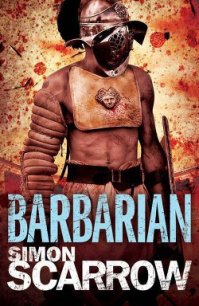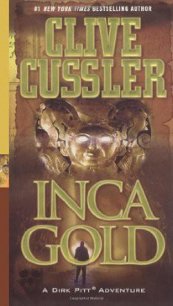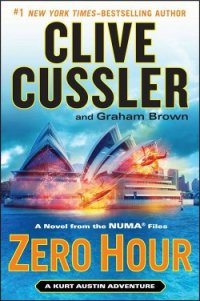Spartan Gold - Cussler Clive (полная версия книги .TXT) 📗
Their rental car—a compact 1991 Lancia Delta—paled in comparison to the Porsche Cayenne, but the air conditioner worked and the engine, small though it was, ran smoothly.
Per Yvette’s instructions, they’d driven inland from Rio Marina, passing through one quaint Tuscan village after another—Togliatti, Sivera, San Lorenzo—winding their way through lush rolling hills and vineyards, higher and higher into the mountains, until stopping at this promontory overlooking the eastern side of the island.
If not for Napoleon’s exile, Elba would not be the household name it was, which, as far as Sam and Remi were concerned, was a shame as it had its own unique story.
Over its long history Elba had seen its share of invaders and occupiers, from the Etruscans to the Romans to the Saracens, until the eleventh century, when the island fell under the aegis of the Republic of Pisa. From there it changed hands a half dozen times through sale or annexation, starting with the Visconti of Milan and ending in 1860 when it became a protectorate of the Kingdom of Italy.
Remi snapped a few more pictures then they got back in the car and continued on.
“So where exactly did Napoleon spend his exile?” Sam asked.
Remi flipped through her Post-it Note-marked Frommer’s guidebook. “In Portoferraio, on the northern coast. He had two homes, actually, the Villa San Martino and the Villa dei Mulini. He had a staff of somewhere between six hundred and one thousand, and took the title Emperor of Elba.”
“Took the title, or was slapped in the face with it?” Sam asked. “After having had a good chunk of Europe under his thumb, ‘Emperor of Elba’ had to have been something of a letdown.”
“True. Another fun fact: before leaving for Elba Napoleon tried to poison himself.”
“No kidding.”
“Apparently he kept it in a bottle around his neck—a cocktail of opium, belladonna, and white hellabore. Before leaving on the Russian Campaign he had it mixed up.”
“He probably didn’t want to fall into the hands of the Cossacks.”
“Well, I can’t say I blame him. They still don’t like him. Anyway, he drank it but by then it was a couple years old and too weak. He spent the night writhing in pain on the floor, but survived.”
“Remi, you’re a font of knowledge.”
She ignored him, still reading. “What none of the historians seemed to agree on is how exactly he escaped. There were both French and Prussian guards stationed all over the island and offshore there was a British man-o’-war on constant patrol.”
“Tricky little devil.”
“Car behind us,” Sam said a few minutes later. Remi turned and looked out the back window. A half mile down the mountain road a cream-colored Peugeot was rounding a curve. It disappeared from view for a few moments behind a hillside, then reappeared.
“He’s in a hurry.”
Since leaving the Bahamas both Sam and Remi had been hyper-vigilant to signs of pursuit, but had so far seen nothing. The problem with an island as small as Elba was that it had limited points of entry and Bondaruk’s wealth could go a long way here.
Sam tightened his grip on the wheel, eyes alternating between the rearview mirror and the road ahead.
A couple minutes later the Peugeot appeared behind them and closed the gap until it was only a few feet off their bumper. Glare from the sun kept the occupants in silhouette, but Sam could make out two shapes, both male.
Sam stuck his arm out the window and waved for them to pass.
The Peugeot didn’t move, glued to their tail, then abruptly it pulled out and started speeding up. Sam tensed his foot, ready to hit the brake. Remi glanced out the passenger window; there was the narrowest of dirt shoulders there, followed by a sharp drop-off. Five hundred feet below she could see goats grazing in a pasture; they looked like ants. Their passenger tire swerved a few inches right. Gravel peppered the side of the car. Sam eased left, back onto black-top. “Buckled in?” he said through clenched teeth.
“Yep.”
“Where are they?”
“Coming up right now.”
The Peugeot drew even with Sam’s door. Sitting in the passenger seat, a swarthy man with a handlebar mustache stared at him. The man nodded once, curtly, then the Peugeot’s engine revved and it sprinted ahead and disappeared around the next bend.
“Friendly folks,” Remi said with a loud exhale.
Sam relaxed his hands on the wheel, flexing his fingers to get blood flowing back into them. “How far left to go?”
Remi unfolded the map, her finger tracing along. “Five, six miles.”
They reached their destination in the late afternoon. Perched on the slopes of Monte Capanello and surrounded by forests of Aleppo pines and juniper, the village of Rio nell’Elba, population nine hundred, sat under the shadow of the eleventh-century castle, Volter raio, and was to Sam’s and Remi’s eyes the epitome of a medieval Tuscan village, complete with narrow cobblestoned alleys, shadowed piazzas, and stone balconies overflowing with orchids and cascading lavender.
Remi said, “Says here Rio nell’Elba is the rock-hunting capital of Tuscany. They’re still finding mines that date back to the Etruscans.”
They found a parking spot across from the Hermitage of Santa Caterina and got out. According to Yvette, their contact, a man named Umberto Cipriani, was the assistant curator of the Museo dei Minerali, the Mining Museum. Remi got herself oriented on the map and they started walking, finding the museum ten minutes later. As they crossed the piazza Sam said, “Here, let me take your picture. Stand in front of the fountain.”
She did as he asked, smiled for several shots, then rejoined Sam, who called up the images on the camera’s LCD screen. “We should take another, Sam, I’m a little out of focus.”
“I know. Look at what is in focus. Smile, look pleased.”
Remi peered more closely at the image. Fifty feet behind her blurred figure she could see the hood of a cream-colored car jutting from the mouth of a shadowed alley. Behind the wheel a man stared at them through a pair of binoculars.
CHAPTER 24
Playing the carefree tourist, Remi smiled and pressed her face against Sam’s as they looked at the LCD screen. “Our friendly tailgaters,” she whispered through her smile. “A coincidence?”
“I’d like to think so, but the binoculars make me nervous. Unless he’s an urban bird-watcher—”
“Or he’s stalking an ex-girlfriend—”
“I think we’d better assume the worst.”
“Do you see the other one around, the one with the mustache?”
“No. Come on, let’s go in. Act casual. Don’t look around.”
They entered the museum, stopped at the welcome desk, and asked for Cipriani. The receptionist picked up the phone and spoke a few words in Italian, and a few moments later a portly man with thinning salt-and-pepper hair appeared in the doorway to their right.
“Buon giorno,” the man said. “Posso aiutarla?”
“You’re up, Remi,” Sam said. While they both spoke several languages, Italian had for some reason always flummoxed him; Remi was the same way with German, which came naturally to Sam.
“Buon giorno,” she said. “Signor Cipriani?”
“Si.”
“Parla inglese?”
Cipriani smiled broadly. “I speak English, yes. But your Italian is very good. How can I help you?”
“My name is Remi Fargo. This is my husband, Sam.” They all shook hands.
“I’ve been expecting you,” Cipriani said.
“Is there somewhere we might speak in private?”
“Certainly. My office is this way.”
He led them down a short hallway to an office with a window overlooking the piazza. They all sat down and Sam pulled Yvette’s letter from his pocket and handed it across to Cipriani, who scanned it carefully, then handed it back.




